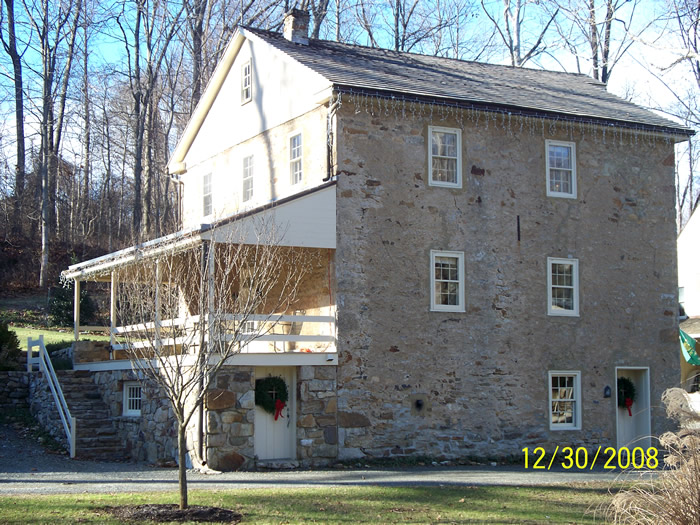
Clinger-Moses Mill / Clement's Mill
Chester Co. | Pennsylvania | USA
Watersource: Pine Creek.
Clinger-Moses Mill / Clement's Mill
From Pa 113 in West Pikeland Twp, go to the intersection with Yellow Springs Rd, just northeast of Chester Springs. Take Yellow Springs Road east to its junction with Lower Pine Creek Rd. Turn onto Pine Creek Road and the mill complex will be on the right, on the opposite side of the creek.

The Clinger-Moses Mill, AKA Clement's Mill, has most, if not all, the machinery tyaken out and is interiorly finished in a contemporay style for use as the owner's place of business-that of reproducing photos.
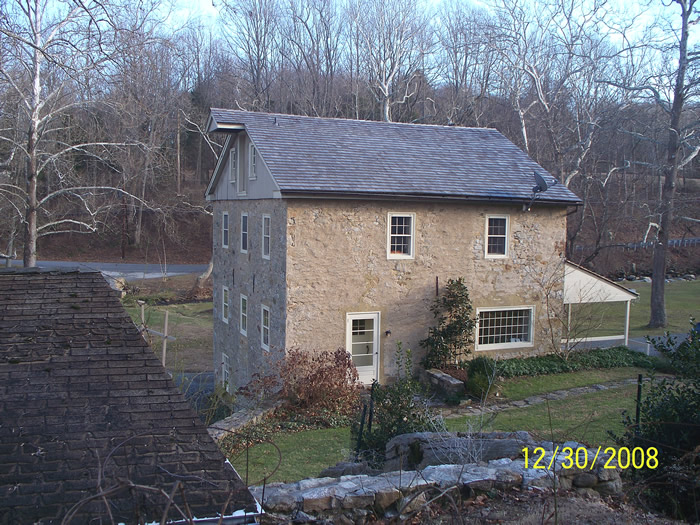
John Clinger was the owner of this land in the late 1700s, and built a grist mill in 1795.
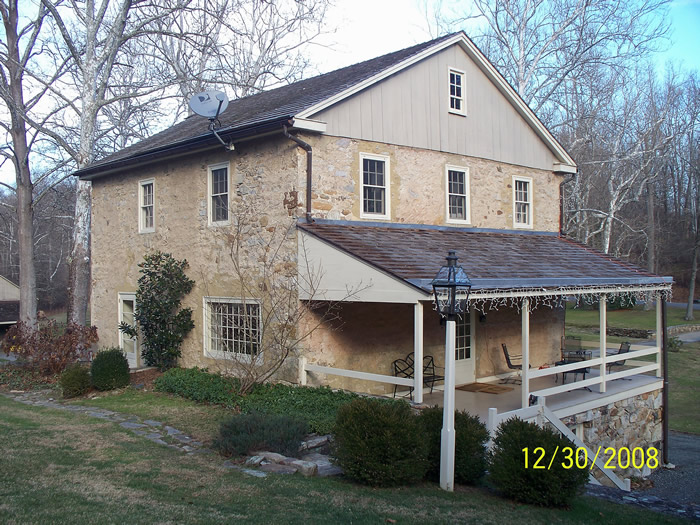
Peter Evans owned the property in the mid-1800's and he sold it to Antrim and Joseph Morgan in 1850, who lost it to a creditor and neighbor, John Moses.
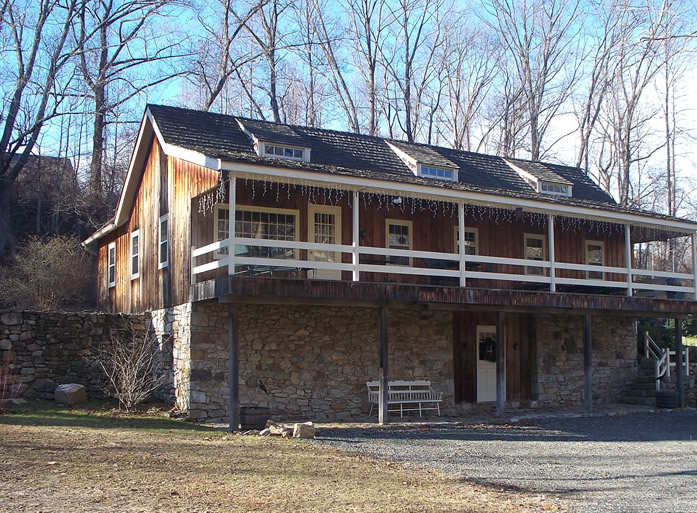
A dwelling built upon the stone foundation of the old 1850's saw mill that was moved to the Smithsonian in 1926.
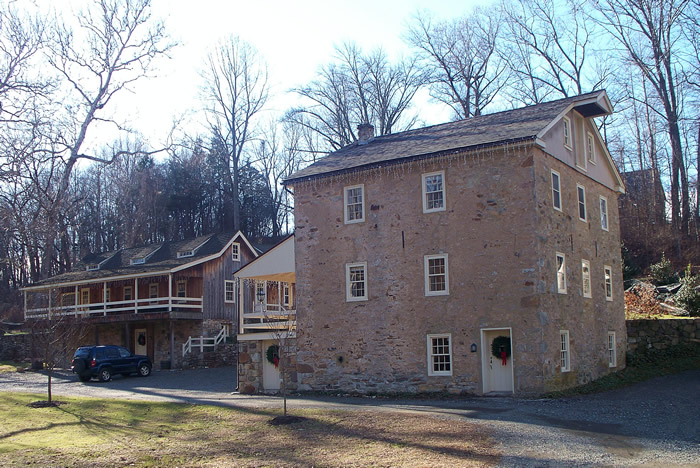
The mill burned around the Civil War and was rebuilt. It remained in the Moses family until 1926, when it was sold to Joseph Clement.
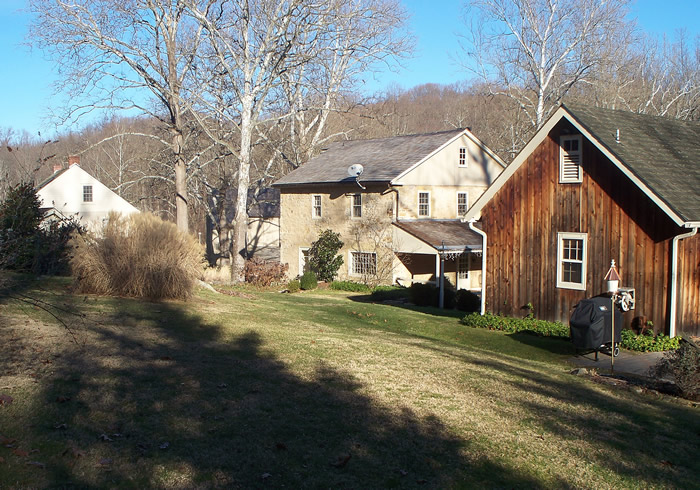
After 1926, Clement sold the up-and-down saw & machinery to the Smithsoniam Institute.
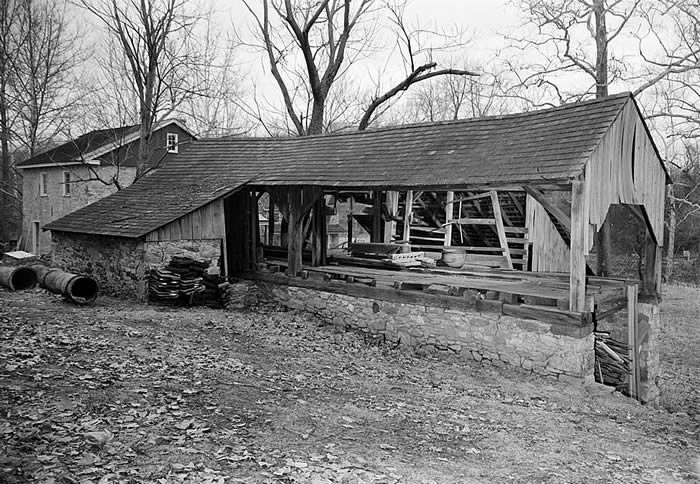
This unusual survival of a water-powered vertical saw with few changes from 1850's. It was dismantled and moved to the National Museum of History and Technology, Smithsonian Institution, Washington, D.C. in 1926.
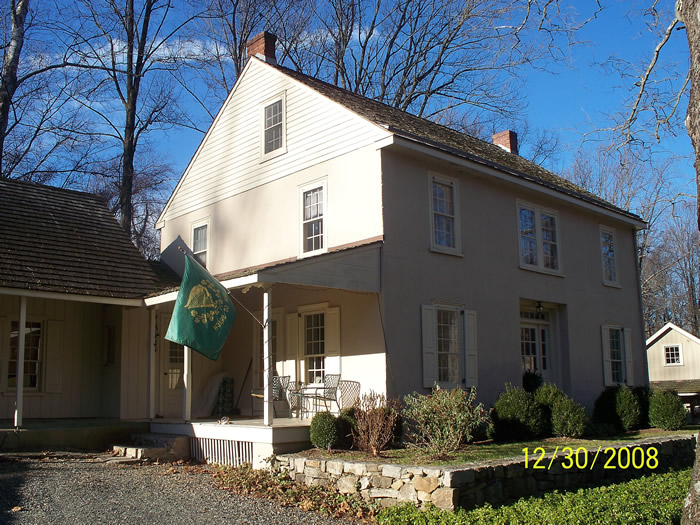
The miller's house was built in 1890.
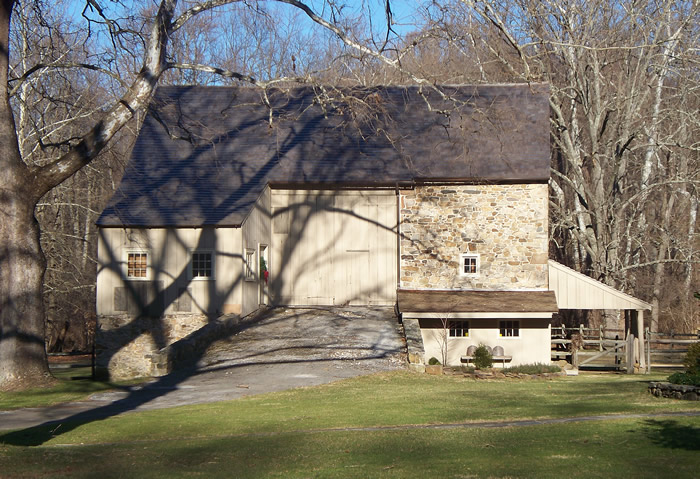
The German bank barn on the mill complex dating from the early-mid 1800's.
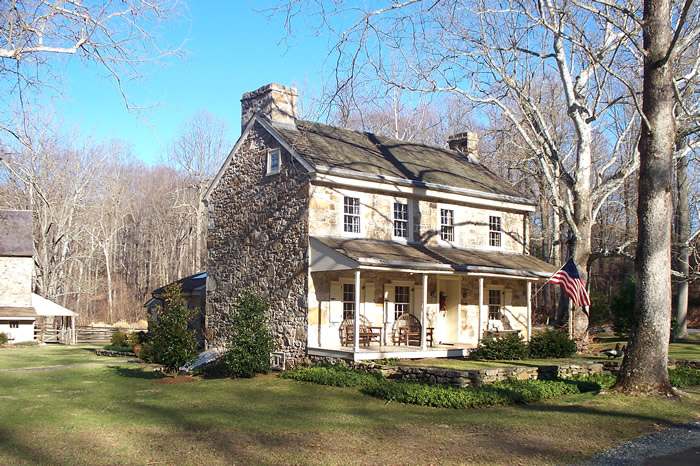
The main or manor house of the grist/saw mill complex. The present owner related that the house was built in 1801, had a fire in 1929 and was rebuilt.
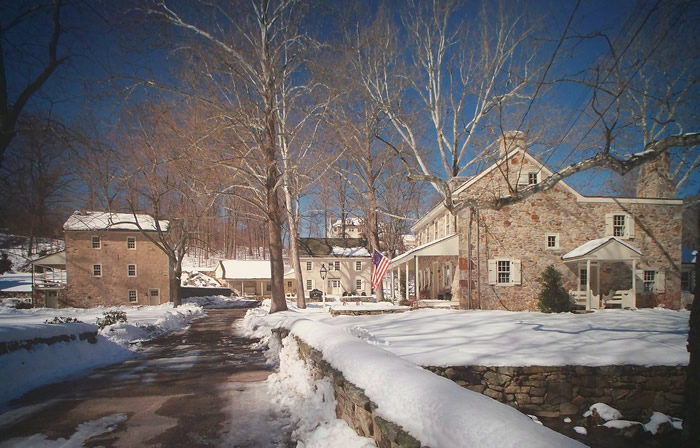
Photo shows the Clinger-Moses Mill farm from Lower Pine Creek Road looking in the lane over the double stone arched bridge spanning Pine Creek.
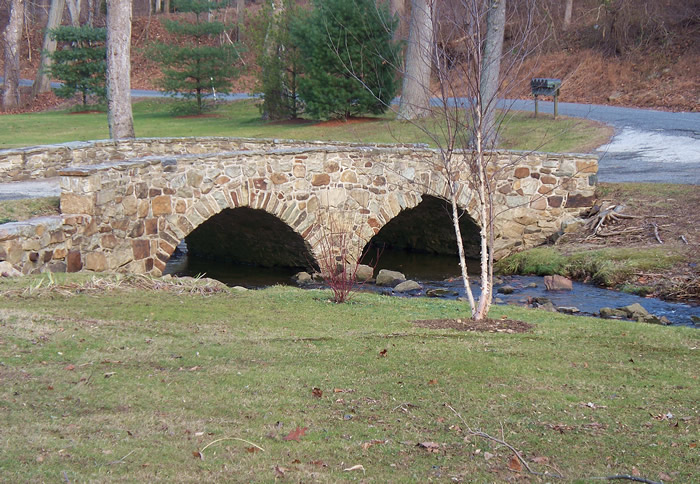
The double stone arched bridge over Pine Creek at the end of the lane joining Lower Pine Creek Road.
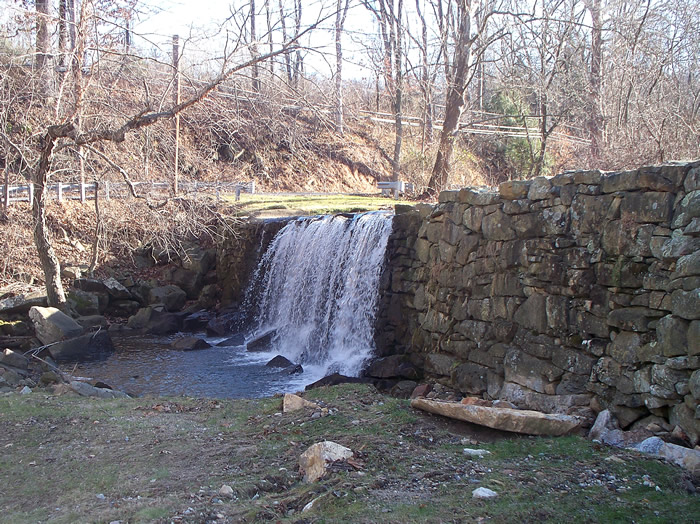
The dam on Pine Creek that provided the water retention to power the grist mill and saw mill in the operating days.
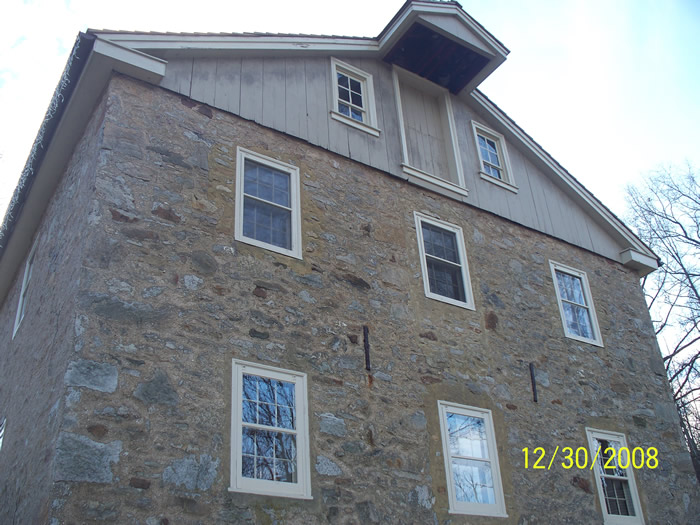
The front of the grist mill structure. Notice that several doors have been replaced with windows.
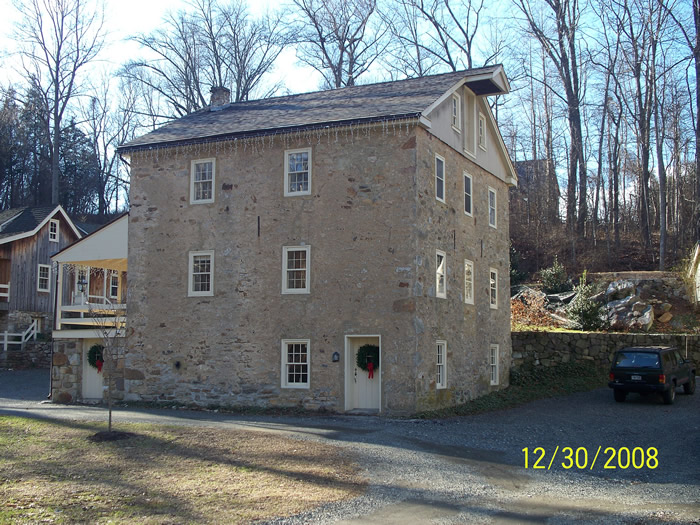
The wooden works of the grist mill were bargained to the Commonwealth of Pennsylvania for use in the Landis Valley Farm Museum in Lancaster.